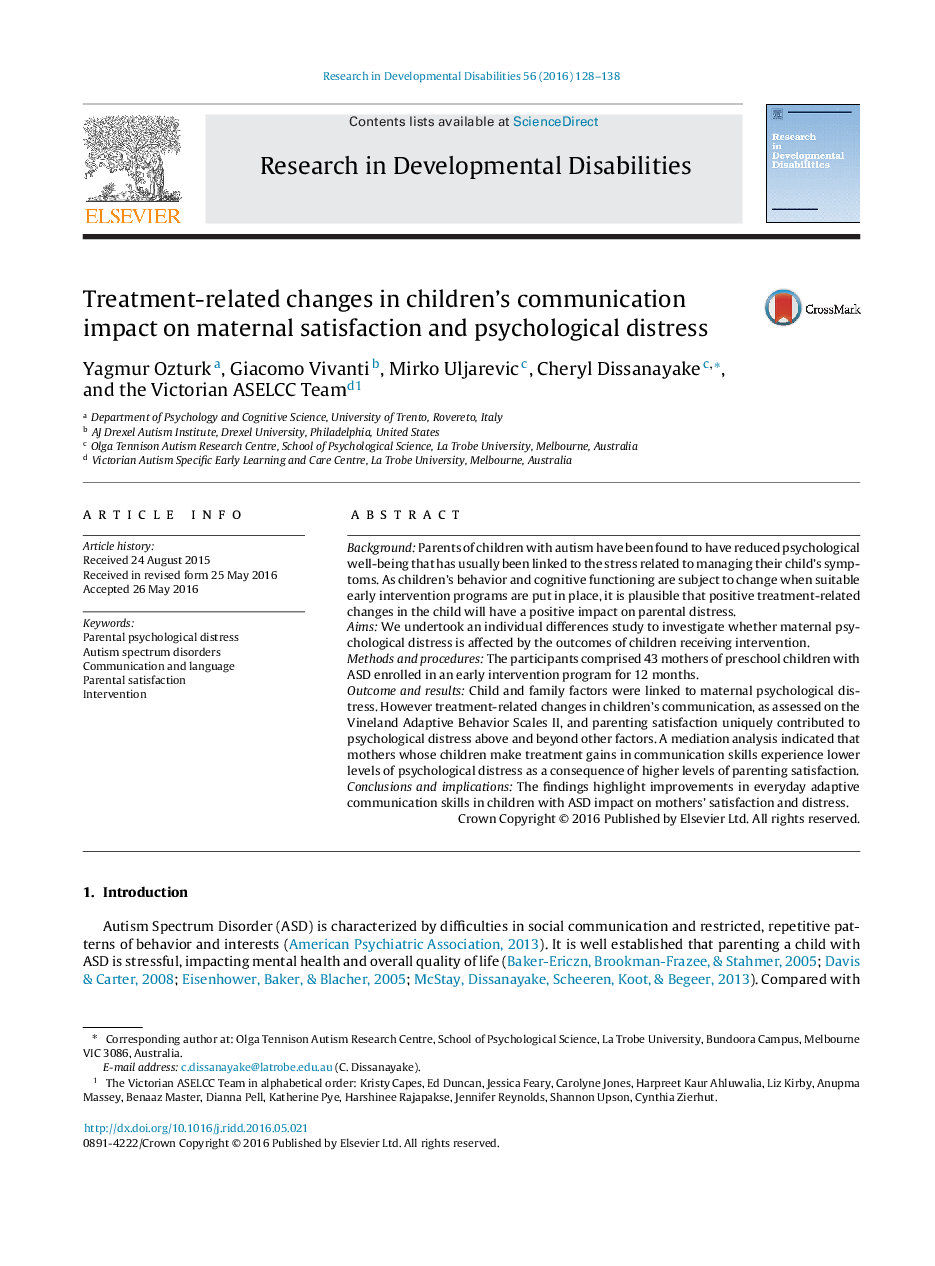| Article ID | Journal | Published Year | Pages | File Type |
|---|---|---|---|---|
| 371030 | Research in Developmental Disabilities | 2016 | 11 Pages |
•Maternal psychological distress is affected by outcomes of children receiving intervention.•Satisfaction influences the effect of treatment-related changes on psychological distress.•Mothers are positively affected by observing improvements in child’s communication.
BackgroundParents of children with autism have been found to have reduced psychological well-being that has usually been linked to the stress related to managing their child's symptoms. As children's behavior and cognitive functioning are subject to change when suitable early intervention programs are put in place, it is plausible that positive treatment-related changes in the child will have a positive impact on parental distress.AimsWe undertook an individual differences study to investigate whether maternal psychological distress is affected by the outcomes of children receiving intervention.Methods and proceduresThe participants comprised 43 mothers of preschool children with ASD enrolled in an early intervention program for 12 months.Outcome and resultsChild and family factors were linked to maternal psychological distress. However treatment-related changes in children's communication, as assessed on the Vineland Adaptive Behavior Scales II, and parenting satisfaction uniquely contributed to psychological distress above and beyond other factors. A mediation analysis indicated that mothers whose children make treatment gains in communication skills experience lower levels of psychological distress as a consequence of higher levels of parenting satisfaction.Conclusions and implicationsThe findings highlight improvements in everyday adaptive communication skills in children with ASD impact on mothers' satisfaction and distress.
